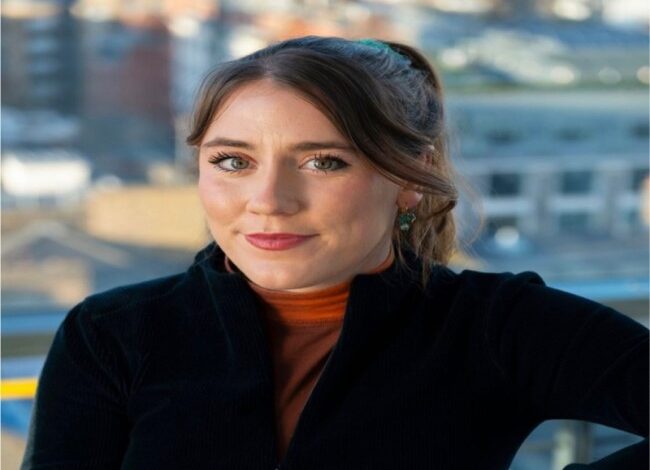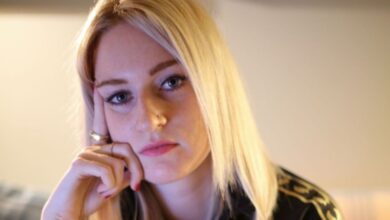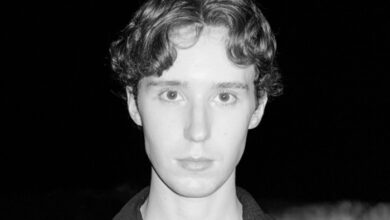Marianna Spring: Unveiling the BBC’s Disinformation Expert

Marianna Spring, a prominent name in journalism, has garnered attention as the BBC’s first Disinformation and Social Media Correspondent. Known for her deep investigations into online misinformation, she holds a unique position in today’s media landscape, balancing the growing challenge of disinformation with robust journalism. In this article, we’ll explore Marianna Spring’s career, background, and personal details, such as her height, age, salary, and more, while highlighting her significant contributions to the media.
Who is Marianna Spring?
Marianna Spring is an award-winning journalist at BBC News, where she has gained recognition for her unparalleled work in exposing the dangers of online misinformation. She presents several podcasts and documentaries investigating social media, disinformation, and their real-world consequences. With her compelling work on platforms like BBC Radio 4, BBC Panorama, and BBC Three, she has positioned herself as an authority on tackling falsehoods and conspiracies online.
Marianna Spring’s Career at the BBC
Marianna joined the BBC in 2019, taking on the role of investigating the vast online disinformation landscape. In March 2020, she became a Specialist Disinformation and Social Media Reporter, leading reports for BBC News and BBC World Service. Her work involves uncovering the impacts of falsehoods related to health, elections, online abuse, and more.
Her role as the BBC’s first Disinformation and Social Media Correspondent began in August 2022. She continues to lead investigations for various BBC platforms, offering in-depth analyses of the ongoing disinformation war online. With an eye on official and unofficial online spaces, Marianna dives into the human impact of these digital phenomena, giving a voice to those affected.
Marianna Spring’s Notable Work
Marianna Spring’s dedication to uncovering the truth has led to groundbreaking reports, including her coverage of conspiracy theories surrounding COVID-19, elections, and foreign interference. She co-presents Americast, a BBC podcast that explores political landscapes in America. Her work consistently emphasizes the real-world effects of online disinformation, going beyond the headlines to address how misinformation impacts people’s lives.
She has also reported on the rise of misinformation during critical events, such as the pandemic and elections, often exposing the people and networks behind viral conspiracy theories. Marianna’s ability to navigate the world of social media disinformation makes her a key figure in modern journalism.
Marianna Spring’s Details
While much is known about her professional career, several personal details about Marianna Spring have intrigued her followers.
Marianna Spring Height:
There isn’t specific public information about her height, but she presents herself as a poised and confident individual in all her on-screen appearances.
Marianna Spring Age:
Born in 1996, Marianna Spring is 28 years old (as of 2024), having established a strong presence in journalism at a young age.
Marianna Spring Salary:
As a high-profile correspondent at the BBC, her salary will likely be within the typical range for prominent BBC journalists. However, exact figures are not publicly disclosed. Estimates suggest she earns between £60,000 to £90,000 per year, depending on her roles and responsibilities.
Marianna Spring BBC:
Her work at BBC is central to her identity. Since joining, she has grown within the organization to become the first dedicated disinformation correspondent, pioneering efforts to counteract the effects of viral misinformation and its broader societal consequences.
Marianna Spring Parents:
While Marianna has kept her family life private, she has clearly credited her parents for supporting her educational and professional journey. Growing up in the United Kingdom, a supportive family environment nurtured her early interest in journalism.
Education and Background
Marianna Spring attended Sutton High School before pursuing higher education at the prestigious University of Oxford, where she earned a Bachelor of Arts in French and Russian. Her background in languages and cultural studies provided her with the critical thinking and communication skills necessary for investigative journalism. During her time at Oxford, she honed her journalistic skills, winning awards like the Ronnie Payne Prize for Foreign Reporting, which set the stage for her future career at the BBC.
Marianna Spring’s Journey at the BBC
Marianna Spring has been at the forefront of investigating digital disinformation at the BBC. Her role involves producing reports for multiple media, from video to audio and text, addressing the human consequences of viral disinformation. Her investigations have been instrumental in exposing how conspiracy theories, such as those surrounding vaccines, are propagated and the actual harm they cause.
In addition to her work on BBC platforms, Marianna has engaged in public discourse, speaking out about the challenges of reporting in an increasingly hostile online environment. She has received praise and criticism for her bold reporting, especially from individuals and groups perpetuating the disinformation she seeks to expose.
The Human Impact of Misinformation
One of Marianna’s key areas of focus is the human cost of disinformation. Whether it’s the spread of health-related falsehoods or politically motivated conspiracy theories, her reports emphasize the real-world effects on people who are often the unsuspecting victims of such false information. By shining a light on these issues, Marianna helps to foster greater awareness about the dangers of unchecked online content.
Challenges in Reporting on Disinformation
Marianna Spring’s work is not without its challenges. As the disinformation correspondent, she has faced significant online abuse and threats, particularly from the communities she investigates. However, she remains committed to her role and understands the importance of holding those responsible for spreading disinformation accountable. The rise of aggressive online rhetoric has only reinforced the need for journalists like Marianna to continue exposing the truth.
Conclusion
In general, Marianna Spring’s contributions to the BBC and journalism cannot be overstated. As the BBC’s first-ever disinformation and social media correspondent, she continues to break new ground in addressing one of the biggest issues facing media today—online disinformation. Her fearless approach to uncovering the truth and deep understanding of the digital landscape makes her a vital voice in modern journalism.
Through her investigations, podcasts, and documentaries, Marianna Spring educates the public on the real dangers of online falsehoods and provides a platform for those affected by them. In a world where misinformation spreads faster than ever, her work serves as a beacon for truth and responsible journalism.



